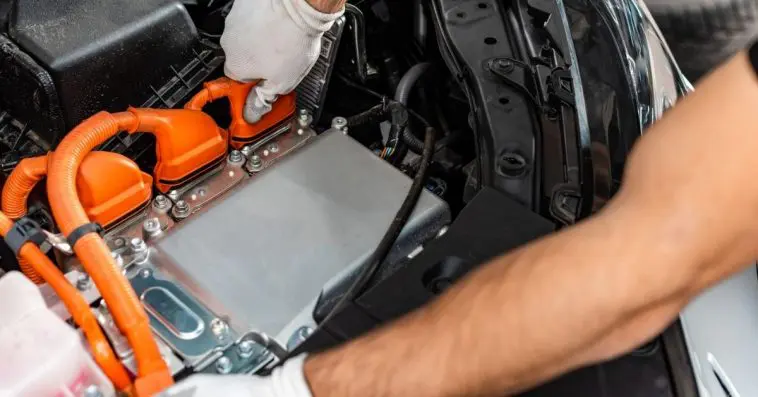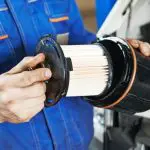Putting the cost of parts and labor, it would cost you between $2500 – $4000 to rebuild a typical engine. The price could be higher by a few more thousands, when the damage is extensive and would require relatively more time or energy.
The brand, year of manufacture and even the car model are factors that can affect the price of rebuilding an engine. The engine of a mass-produced car will be cheaper to rebuild because the parts can found easily.
Some engine designs are more complex than others. Some cars will require the whole engine to be lifted out to change something as small as the starter. This will require more time and work, and consequently, drive up the cost of your rebuild.
TABLE OF CONTENTS
Why Rebuild Your Engine?
Before you rebuild your engine, you would have noticed a few things, a few symptoms. But there are two main ‘car diseases’ that would warrant a rebuild of your engine. Worn out engine bearings and piston rings that are not seated poorly.
Bearings make up and support quite a number of a car engine’s mechanical parts, the shaft, for example. When the car engine is not properly lubricated, naturally, bearings, which are designed to support the running of a car for miles, would begin to wear out.
Soon you begin to hear knocks in the engine when driving. And if left unattended, it leads to total engine failure. Poorly seated piston rings are the second disease and let’s just say it keeps your car in a perpetual farting state – these farts are usually dark and cloudy.
Other Signs And Symptoms
It may take a professional engineer to figure out exactly what is broken or damaged in your engine that would require it to be rebuilt. But it doesn’t take a professional to know that something is generally wrong with your car engine. A little observation is all you need.
These engines are brains, and they know just how to transmit information. Below are some of the ways you can tell that your engine needs attention.
1. When The Car Just Won’t Start
This is common with cars. And sometimes just requires checking that the battery is connected properly and the wiring is not loose. If there is no problem with the battery, then the starter motor could be faulty. It can be easily replaced for the labour inclusive cost of $350.
However, In the case where your car still refuses to start with your battery and motor rectified, then it may be time to rebuild your engine.
2. Leaks Or Thick Smoke In The Exhaust
Engines often have seals located somewhere at the bottom. When they get loose, they can cause the car oils to burn hot, causing leaks in the pipes and giving off thick smoke. Or just simply known as a ‘Blow-by’. *An engine rebuild may be required to remove and replace the loose seals.
3. Damaged Timing Belt
The timely opening and closing of engine valves are thanks to the timing belts found in the internal combustion system. A torn or damaged timing belt can cause serious malfunctions in the car.
Another symptom that screams just about $1000 worth of engine rebuild.
4. Mixture Of Coolant And Engine Oil
While they can mix, they shouldn’t mix. Finding coolant in your oil and vice versa is a sign of several things; a cracked engine block or a blown head gasket or some other major internal problem that might be best known to the professionals.
Fixing this problem would require a lot of time, and warrant rebuilding your engine.
5. Clattering Sounds When Accelerating
‘Piston Slap’ refers to the irregular movement of the pistons inside the cylinders when you step on your accelerator. Clattering noises can also be a result of a broken timing belt.
This doesn’t affect the movement of your car, so there is a temptation to ignore it until it develops into a bigger problem, which will now require you to rebuild your engine at an even higher cost.
What Happens During An Engine Rebuild?
The first order of business for you is to find a certified automotive engineer. And the first order of business for the engineer is to inspect the engine to find out what is wrong.
Depending on the degree of damage observed, the lower half of the engine, also known as the short block is often removed.
The short blocks are cleaned and dissembled for closer inspection. Any part that does not meet the manufacturer’s standards is changed.
The valve, gaskets, the worn-out bearings, the piston rings, and sometimes even the piston themselves are replaced. The timing belt and the freeze plugs, too, if necessary.
Next up, the cylinders are primed to ensure the piston rings seal properly with the cylinder walls.
The engine blocks may sometimes have to be bored and aligned for the crankshaft. The engine is then reassembled, tested for proper oiling and compression before getting reinstalled in the car.
Now you have an “almost-brand-new-car” again. Or, let’s just call it what it is, an old car with new parts, no offence intended.
What Are The Alternatives?
Having a faulty car engine can be quite a dilemma. Do you scrap the car and buy a new car? What?. You can simply replace your engine or installed a remanufactured engine delivered by a reliable automobile factory.
A remanufactured engine is more extensive and replaces more engine components than a rebuilt engine. But if you’ve got the dough, then, by all means, get yourself a new car.
Where Do I Go To Rebuild My Engine?
Okay, so you just can’t let go of this car for reasons best known to you. It would be best to go about rebuilding your engine the right way, so as not to incur extra costs. This is where you need to find a good, preferably certified mechanic to get the job done.
Here are your options below:
1. Use A Dealership
A dealership sells cars, so naturally, they will have car parts as well. You cannot only count on the quality of the parts you can get in a dealership but also on the quality of service they offer, given that they will have mechanics that are experts in your specific car brand.
Having your engine rebuilt in a dealership may be a little expensive, but you are guaranteed to drive out with a better car than you drove in with.
2. Autobody Shops
This is a more preferred option for most car owners, first because they offer generally better prices than dealerships do.
You can also get to pick who works on your car and have one-to-one relations with them. The quality of service provided by autobody shops is certainly no less inferior for their lower cost.
3. Independent Mechanics
If you don’t have the money to buy a new car or opt for another option, and you also happen to be on a budget for your engine rebuild, then independent mechanics are your best option.
Independent mechanics do a good job, but there are no guarantees if they do a bad job; it will just be left for you to decide. An extra pointer would be checking to see if your service provider is a part of the Automotive Engine Rebuilders Association.
What If My Engine Cannot Be Rebuilt?
This can happen, especially if you run a car for months on end without any maintenance. Some damages cannot be remedied by rebuilding.
This would inevitably require a change of the entire car engine. This will cost you more than what rebuilding will cost, but on the bright side, it will cost you less the price of purchasing a new car.
Pros:
It’s reassuring to see the engine of your car laid bare, injector to pan. The components are cleaned thoroughly, whether or not they will be replaced.
Additionally, having new components in your car gives satisfaction that only a new car could top. Not to mention that it would cost you less than a new car would.
New components also mean an extended life for your engine, and car as a whole. In most cases, they can outperform the old components.
Some of these new components may be upgraded versions of the previous component of your engine. So you could have an old-looking car with up-to-date functions.
Higher mileage and lower emissions, one for you and one for the environment. The Car Care Council have said that rebuilding an engine is more economical in the long run than a quick repair job.
So in a way, you’re saving costs as well. Some engine rebuild work comes with a warranty ranging from 12,000 miles for one year to unlimited mileage for a 3-year duration.
Cons:
An engine rebuild may leave you with a combination of old and new engine parts. No matter how efficient the new components may be, the old ones may affect the general engine function and life span. It would also require you more frequent maintenance.
Conclusion
The decision to rebuild your engine comes with upsides and downsides as we have seen, but you really don’t have much to worry about.
If you want your ride to return to optimum performance, you want to enjoy getting on the steering wheel again, then I say, pay the cost, go for it!




